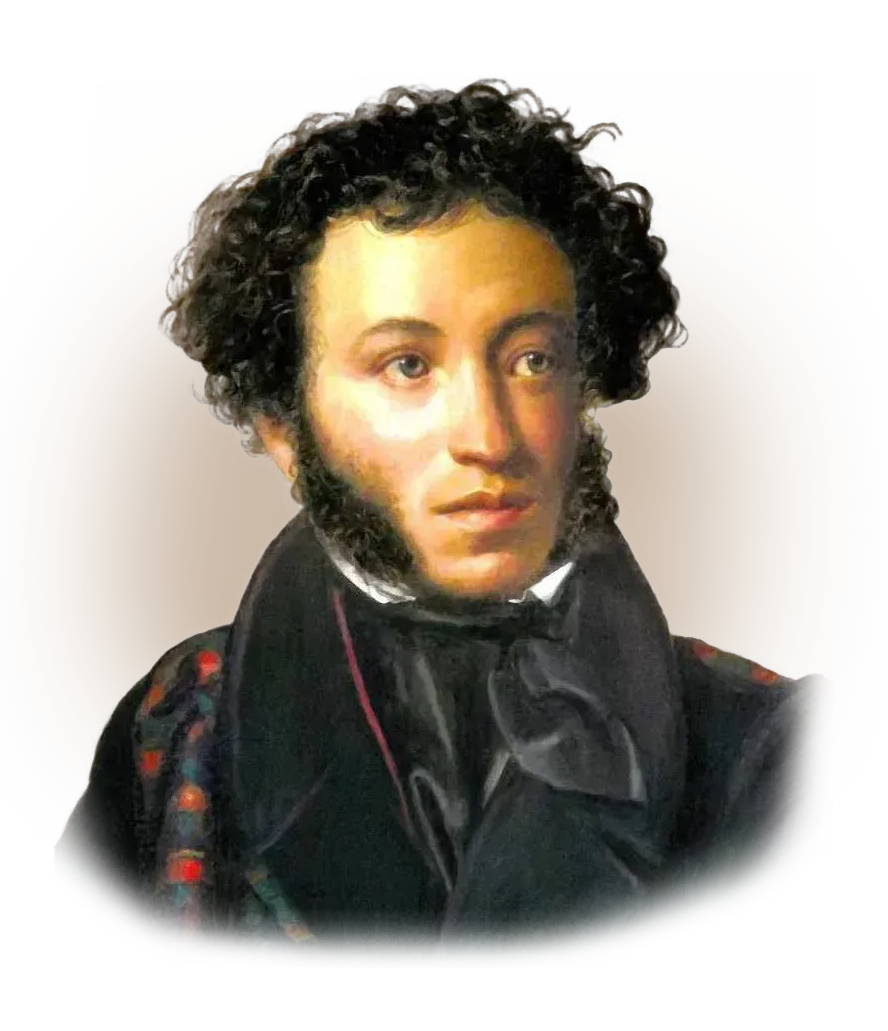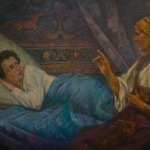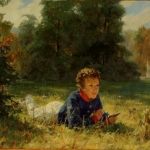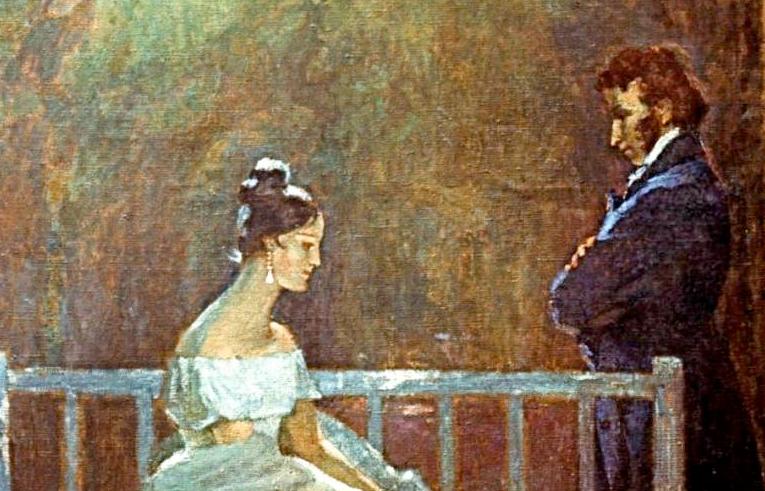
06.01.2023
The first fleeting meeting of Anna Petrovna Kern and the young poet Alexander Sergeevich Pushkin, who had yet to earn the status of “the sun of Russian poetry”, happened in 1819. At that time, the young beauty was 19 years old and she had been married for two years.
Marriage of Kern
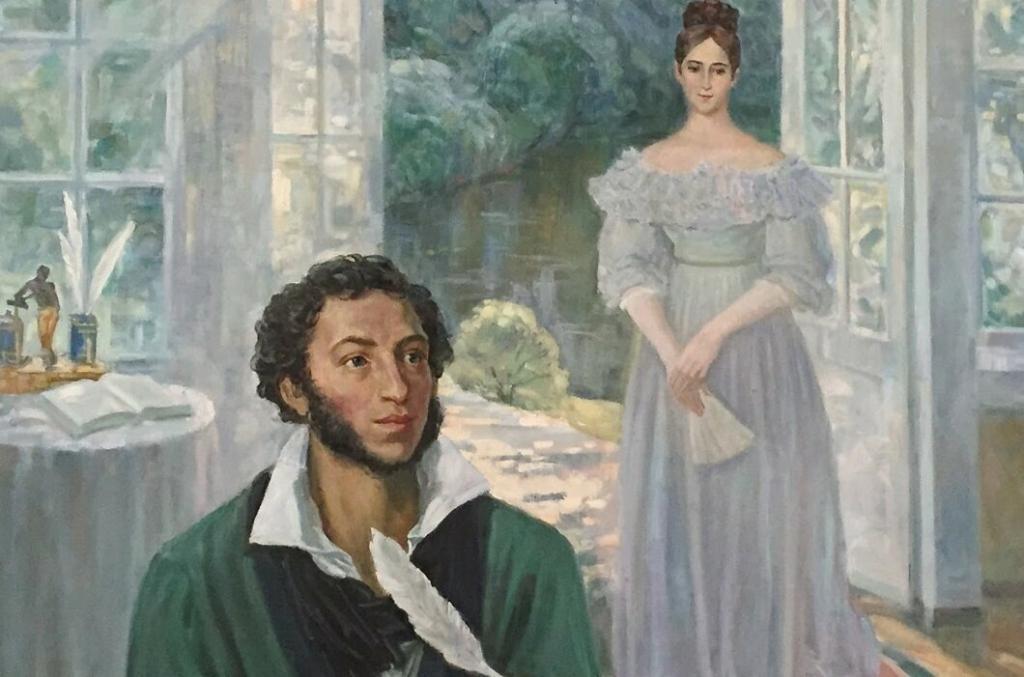
A hereditary noblewoman, the daughter of a court counselor and a Poltava landowner who belonged to an old Cossack family, Anna Poltoratskaya went to the crown at the age of 16. The father, who was unquestioningly obeyed in the family, decided that the best match for his daughter would be 52-year–old General Ermolai Kern – it is believed that later his features will be reflected in the image of Prince Gremin in Pushkin’s Eugene Onegin.
The wedding took place in January 1817. To say that a young wife did not love her elderly husband is to say nothing. Apparently, she was disgusted with him on a physical level – but she was forced to pretend to be a good wife, traveled with the general to the garrisons. At first.
In the diaries of Anna Kern there are phrases that it is impossible to love her husband and that she “almost hates” him. In 1818, their daughter Katya was born. Anna Petrovna also could not fall in love with a child born from a man she hated – the girl was brought up in Smolny, and her mother took part in her upbringing at a minimum. Their other two daughters died in childhood.
A fleeting vision
A couple of years after the wedding, rumors began to circulate about General Kern’s young wife that she was cheating on her spouse. And in the diaries of Anna herself, there are mentions of different men. In 1819, during a visit to St. Petersburg to his aunt, Kern met Pushkin for the first time – her aunt Olenina had her own salon, many famous people visited their house on the Fontanka Embankment.But then the young 21-year–old rake and wit did not make a special impression on Anna – he even seemed rude, and Kern found his compliments to her beauty flattering. As she later recalled, she was much more interested in the charades that Ivan Krylov, who was one of the regulars of the evenings at the Olenins, was making.
Meeting after a year
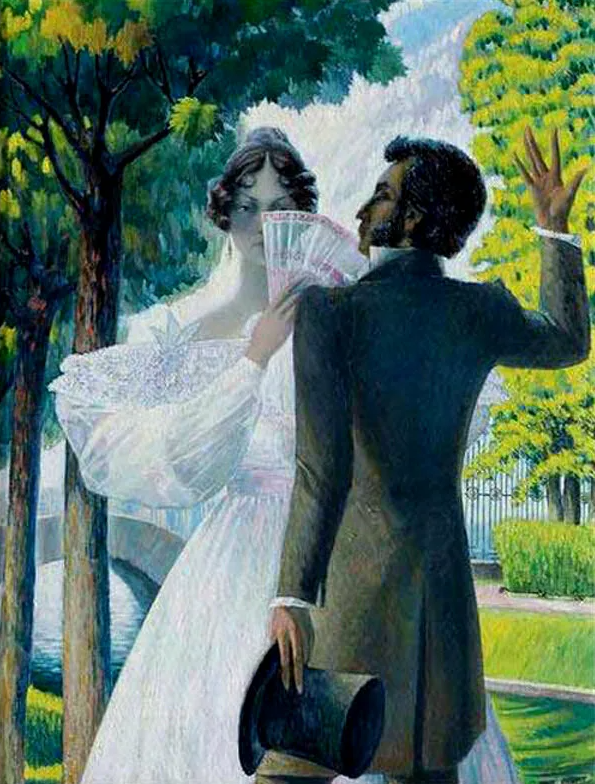
Everything changed six years later, when Alexander Pushkin and Anna Kern got an unexpected chance to get to know each other better. In the summer of 1825, she stayed with another aunt at the estate in the village of Trigorskoye near Mikhailovsky, where the poet was serving exile. Bored Pushkin often visited Trigorsky – that’s where the “fleeting vision” sank into his heart.
At that time, Alexander Sergeevich was already widely known, Anna Petrovna was flattered by his attention – but she herself fell under the charm of Pushkin. In her diary, the woman wrote that she was “in awe” of him. And the poet realized that he had found a muse in Trigorsky – the meetings inspired him, in a letter to Anna’s cousin, Anna Wolf, he reported that he was finally writing a lot of poetry.
It was in Trigorsky that Alexander Sergeevich gave Anna Petrovna one of the chapters of “Eugene Onegin” with an enclosed sheet on which the famous lines were written: “I remember a wonderful moment…”
At the last moment, the poet almost changed his mind – and when Kern wanted to put the piece of paper in the box, he suddenly snatched the paper – and for a long time did not want to give it back. As Anna Petrovna recalled, she barely persuaded Pushkin to return it to her. Why the poet hesitated is a mystery. Perhaps he found the verse not good enough, perhaps he realized that he had overdone the expression of feelings, or maybe for some other reason? Actually, this is the most romantic part of the relationship between Alexander Pushkin and Anna Kern ends.
It looks like love
After Anna Petrovna and her daughters left for Riga, where her husband was then serving, they corresponded for a long time with Alexander Sergeevich. But the letters are more like a light playful flirtation than they talk about deep passion or about the suffering of lovers in separation. And Pushkin himself, shortly after meeting Anna, wrote in one of his letters to her cousin Wolf that all this “looks like love, but I swear to you that there is no mention of it.” And his “I beg you, divine, write to me, love me,” mixed with witty barbs towards an elderly husband and arguments that pretty women should not have a character, rather speaks of admiration for the muse than of physical passion.
The correspondence lasted about six months. Kern’s letters have not survived, but Pushkin’s have reached descendants – Anna Petrovna took great care of them and regretfully sold them at the end of her life (for a song) when she faced serious financial difficulties.
